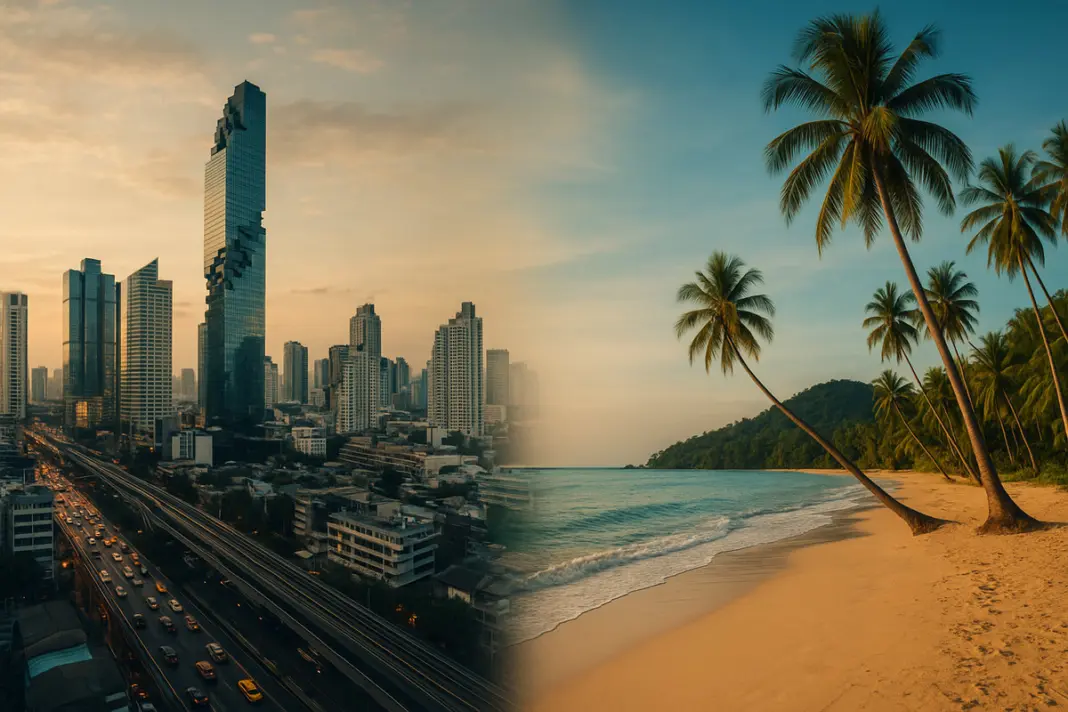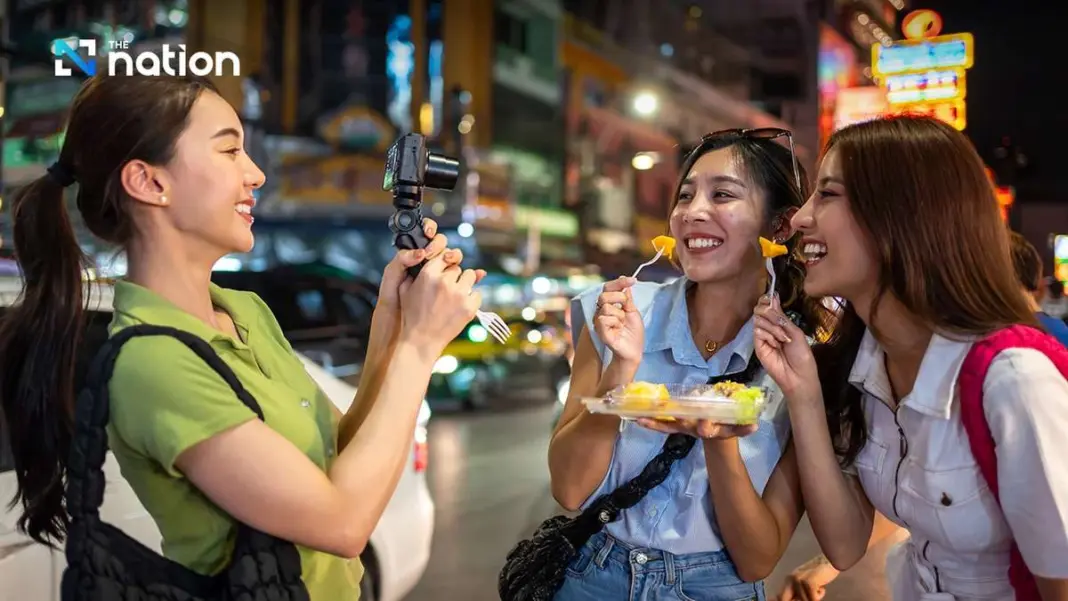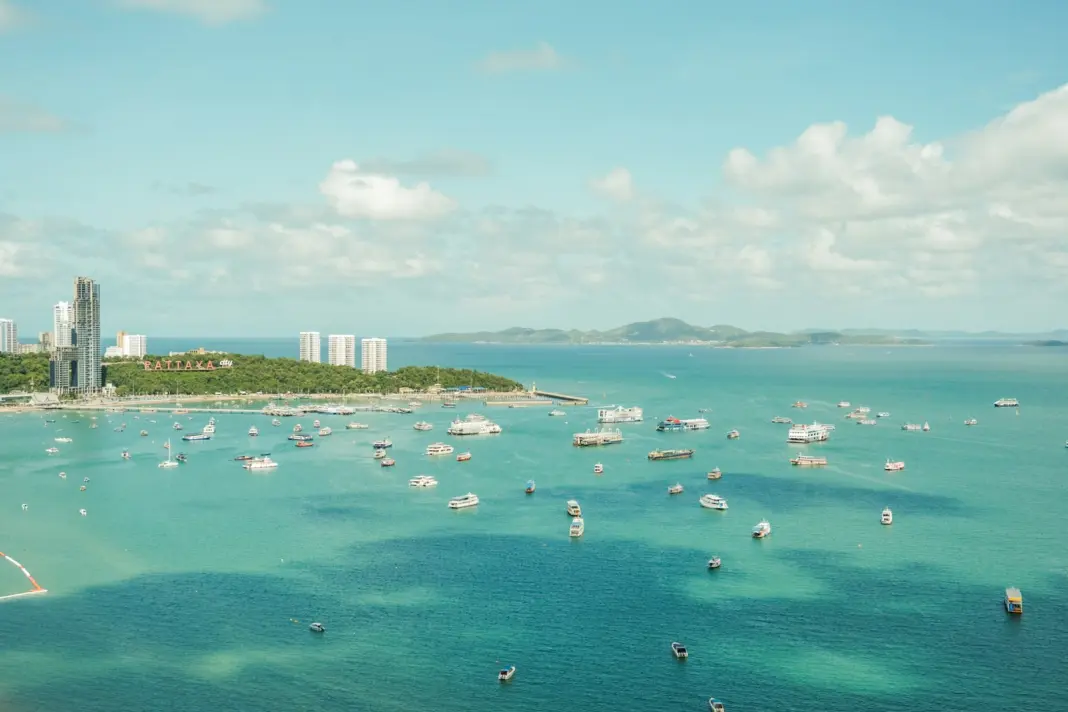Thailand’s Tourism Triumph: Record Numbers, Rising Hopes
Thailand is once again the darling of global travellers. In 2025, the Southeast Asian kingdom enjoys a spectacular tourism boom. Over twelve million international guests arrive in just five months. Tourism revenues soar, jumping more than five percent from last year.
Bangkok and Phuket are the stars of the show. The capital buzzes with excitement, while Phuket alone welcomes nearly six million visitors. The island eyes a staggering twelve billion Euro in annual tourism income. “We’ve never seen numbers like this,” says a local official.
But is the story really all golden beaches and gourmet delights?
Behind the Scenes: Thailand’s Hidden Industry
Official figures paint a picture of paradise—pristine sands, glittering temples, and world-class cuisine. Yet, beneath the postcard-perfect image, another side of Thai tourism thrives: the commercial entertainment industry.
For decades, this shadow sector—encompassing adult services—has sparked fierce debate. It raises tough economic and ethical questions. “It’s part of our reality, whether we like it or not,” admits one Bangkok resident.
This article peels back the layers, exploring the legal, social, and economic complexities of Thailand’s 2025 tourism landscape.
A Long, Complicated History
Thailand’s entertainment industry is no modern invention. Chinese travellers in the 15th century noted its presence. European sailors in the 17th century did the same. But the real boom began after World War II, exploding during the Vietnam War as US soldiers flocked to Thailand for R&R.
The 1980s saw the government pour money into tourism. The result? A surge in both mainstream and adult entertainment. Economic hardship in rural areas drove many—especially women with limited education—into city jobs, often in the service sector. “It was survival,” recalls a former worker.
Today, Thailand is a rising economic power, boasting a growing middle class, a robust car industry, and a thriving tech scene. Bangkok has become a regional business hub. But old social challenges persist, especially outside the big cities.
The Law: Clear on Paper, Murky in Practice
Thailand’s laws are strict. Since 1960, commercial adult services are officially banned. The 1996 Prevention and Suppression of Prostitution Act spells out tough penalties for brothel owners, intermediaries, and even clients. Fines and jail time are real threats.
Child protection is paramount. Exploiting anyone under eighteen brings severe punishment. International agencies keep a close watch, and Thailand faces constant scrutiny over human rights and trafficking.
Yet, reality is more complicated. Many venues operate as bars, massage parlours, or karaoke lounges—skirting the law. Authorities often turn a blind eye, creating a gap between rules and reality.
Recently, debate rages over legalisation. A 2023 bill proposes ending the ban and introducing protections for workers. Supporters say this would improve safety and rights. Critics warn of a surge in the industry and social fallout. For now, the old laws remain.
Bangkok: City of Contrasts
Bangkok dazzles and overwhelms. Over ten million people call it home. Skyscrapers tower beside ancient temples. Luxury malls neighbour bustling street markets. It’s a magnet for business travellers, culture lovers, and backpackers alike.
The nightlife is legendary. Districts like Sukhumvit, Silom, and Ratchada offer everything from rooftop bars to neon-lit clubs. Some venues stick to legal entertainment—live music, dance, fine dining. Others operate in legal grey zones.
But most visitors in 2025 come for other thrills. Bangkok’s food scene is unmatched, from street stalls to Michelin stars. Tourists flock to the Grand Palace, the reclining Buddha at Wat Pho, and the floating markets. Shoppers lose themselves in mega-malls like IconSiam and CentralWorld.
Tourism is Bangkok’s lifeblood. Hotels, restaurants, taxis, and shops all thrive on the influx. The city works hard to brand itself as a cosmopolitan, welcoming destination.
Phuket: From Sleepy Island to Tourist Giant
Phuket’s transformation is astonishing. Once a quiet spot of tin mines and fishing boats, it’s now a global hotspot. Patong, Kata, and Karon beaches lure sunseekers with turquoise waters and luxury resorts. In early 2025, Phuket rakes in about three billion Euro in tourism revenue, aiming for a record year.
Patong is the island’s beating heart. By day, families relax on the sand. By night, Bangla Road erupts in a riot of neon, music, and crowds. “It’s wild, but that’s why people come,” says a local bartender.
Yet, Phuket is more than parties. Upscale resorts cater to luxury travellers. Quiet bays offer peace for those seeking escape. Divers explore the Similan Islands, while culture buffs visit the Big Buddha or local villages. Foodies enjoy everything from spicy southern Thai dishes to international fare.
Tourism is Phuket’s backbone. Up to eighty percent of the local economy depends on it. The pandemic hit hard, but recovery since 2023 has been swift. Visitor numbers are nearly back to pre-crisis highs.
The Numbers: Tourism’s True Value
Tourism is Thailand’s economic engine. Before COVID, it made up about twenty percent of GDP and supported millions of jobs. In 2025, the sector is surging back. Revenues in the first months outpace last year, and forecasts are bright.
The entertainment industry’s true size is hard to pin down. Many activities are off the books. International groups estimate billions flow through the sector each year. Countless Thais rely on it—directly or through support roles like security, catering, or transport.
Visitor profiles have shifted. Westerners once dominated, but now more tourists come from China, India, Malaysia, and South Korea. This brings new expectations—and new business opportunities.
Thai Society Speaks: Divided Views
Thais are split on the entertainment industry. Older, conservative voices call it a stain on the nation’s image. Younger, urban Thais often take a practical view. “It’s not ideal, but people need to eat,” says a university student.
Activists and NGOs fight for workers’ rights—demanding legal protection, healthcare, and action against exploitation. They argue that bans only drive the trade underground, making abuse more likely.
Efforts to offer alternatives are growing. Education programmes in rural areas aim to give young people, especially girls, better options. Economic projects try to create jobs in regions hit by migration. Progress is slow but visible.
The legalisation debate splits the country. Supporters say regulation would guarantee rights and boost tax income. Opponents fear it would clash with Thai values. Buddhist monks and religious leaders mostly oppose any change.
Thailand Under the Global Spotlight
Thailand faces intense international scrutiny, especially over trafficking and exploitation. The US State Department’s annual report keeps Thailand on the Tier-2 Watchlist—progress made, but not enough.
Global agencies and Thai partners work together on victim protection, prevention, and legal reform. Joint police operations have led to high-profile arrests. “We’re making progress, but challenges remain,” admits a police spokesperson.
Thailand’s image is complex. Tourists praise its warmth and beauty, but some are wary of its darker reputation. The tourism board pushes campaigns like “Amazing Thailand” to highlight culture, nature, and food—and to encourage responsible travel.
Neighbouring countries face similar issues. Regional cooperation and sharing solutions could help all.
The Dark Side: Real Dangers and Difficult Choices
The entertainment industry brings real risks. Not everyone chooses this path freely. Economic desperation, family pressure, or lack of options push many into the trade. Coercion, deception, and violence are grim realities.
Trafficking is a constant threat. Criminal gangs lure people—often from Myanmar, Laos, or Cambodia—on false promises, then trap them in debt or violence. Victims are hard to identify and rescue.
Health dangers are serious. Sexually transmitted infections are a risk, and access to care is patchy. Psychological trauma, stigma, and substance abuse are widespread.
Corruption makes things worse. Bribes to police are common, letting illegal businesses operate unchecked. This undermines reform and shields criminals.
Signs of Hope: Change on the Horizon
Despite the problems, there’s progress. The government has toughened anti-trafficking laws and set up special police units. International training has boosted skills.
NGOs provide shelters, job training, and counselling for those wanting to leave the trade. Awareness campaigns warn rural communities about trafficking scams.
Thailand’s growing prosperity helps. As incomes and education rise, fewer people are forced into risky work. The middle class demands more social justice and protection for the vulnerable.
Tourism is changing, too. Hotels and travel firms sign codes of conduct against exploitation. Staff are trained to spot trafficking victims. These steps are early, but vital.
Smart Travel: How to Visit Responsibly
Travellers can make a difference. Learn about Thai culture and laws before you go. Thais value politeness and respect, especially towards the royal family and religious sites.
Support local businesses—eat at family-run restaurants, shop at markets, book tours with local guides. Your money helps real people.
Think before you join any entertainment. If something feels wrong, walk away. Respect everyone’s dignity.
If you see signs of exploitation or child involvement, report it to local authorities or groups like ECPAT International. Anonymous hotlines are available.
Thailand’s Future: At a Crossroads
Thailand’s tourism faces a turning point. The pandemic exposed the risks of over-reliance on visitors. Now, there’s a chance for a fresh start—focusing on sustainability, fairer wealth distribution, and protecting natural and cultural treasures.
The debate over adult entertainment laws will continue. Legalisation could bring rights and safety—or new problems, depending on how it’s done.
Thailand’s true riches lie beyond controversy. Its history, landscapes, food, and famously warm people are its real treasures. The challenge is to celebrate these strengths while tackling tough social issues.
For 2025’s visitors, Thailand remains a land of wonder—if you look beyond the surface. The country’s real beauty is its complexity, and its people’s ability to blend tradition, change, hardship, and hope.
Looking Deeper: Beyond the Stereotypes
Thailand is a nation of contrasts. Tourism brings prosperity and pride, but also tough challenges. The entertainment sector is just one part of a much bigger story.
A clear-eyed view means recognising all sides—the economic lifeline, the legal and moral dilemmas, the international standards, and the unique Thai culture. There are no easy answers. But with dialogue, education, and steady reform, progress is possible.
Thailand’s path lies between growth and responsibility, tradition and change, global expectations and local needs. The coming years will test whether the country can strike this balance. Change is in the air, but the journey will be hard.
Thailand deserves to be seen in all its depth—celebrated for its beauty, but never blind to its struggles. Only then can we truly understand the Land of Smiles.
This article draws on public sources, academic research, and current reports to inform and spark discussion—not to judge or glamorise.




